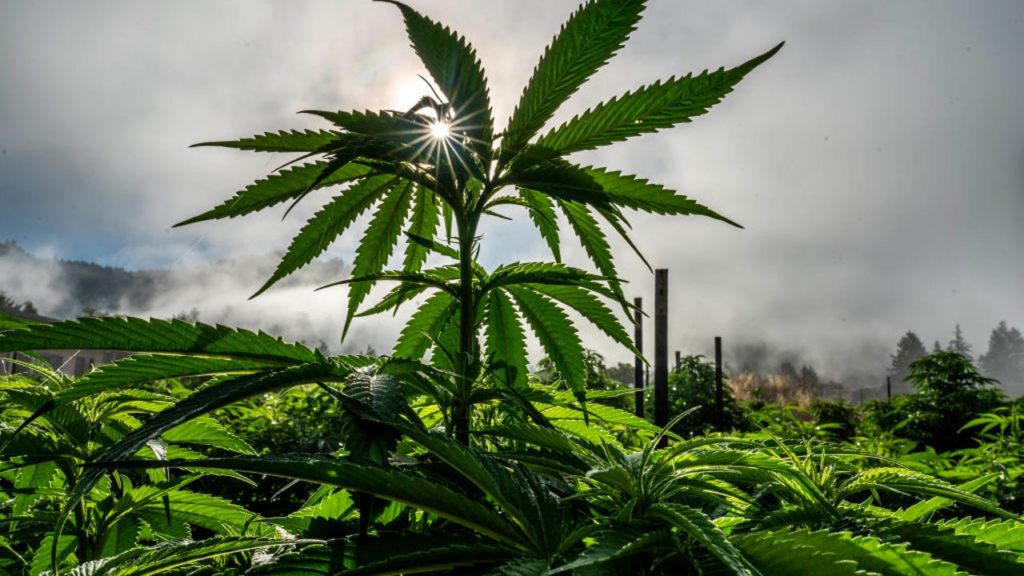California’s Department of Cannabis Control says the state enforcement team formed in 2021 has seen a big increase in search warrants, arrests, and seizures of illegal marijuana that can pose a public safety hazard and harm legal growers.
BERKELEY, Calif. – Neighbors say they noticed a change when a warehouse on the 2400 block of Fourth St. in Berkeley was sold.
“It used to be a machine shop and I think the guy retired and sold his business and another company moved in,” said Leslie Champlin, who works nearby.
People at surrounding businesses say the new owners put a black tarp across the entire fence.
“You couldn’t see anything past that line. It was all blocked off. It was dark,” said Victor Gascon, owner of Seventhirty.co which has facilities next door.
“So you couldn’t see in,” said Champlin. “Just figured they were building inside.”
Instead, when the California Department of Cannabis Control’s enforcement team raided the building, they found a massive illegal marijuana growing operation inside. The raid on Feb. 8 netted more than 11,000 pounds of illegal products.
David Hafner, a spokesman for the California Department of Cannabis Control, says the state only created the enforcement team in 2021, but already the 60 officers are having a huge impact.
“We have been focused on cultivation efforts in 2022 which have a higher yield of illegal cannabis versus dispensaries,” said Hafner.
New data shows that in 2022, the state increased the number of search warrants, seizures, arrests, and illegal cannabis plants eradicated.
The data shows enforcement officers seized more than 144,254 pounds of illegal cannabis statewide, compared to 41,000 pounds the year before.
Hafner says illegal growing operations are a public safety hazard.
“There’s always a safety risk with these illegal operations because many of these are organized by criminal organizations who often are armed and dangerous,” said Hafner.
In another raid, state officials took down two illegal marijuana growing sites in Oakland on Feb. 15-16. Officers found warehouses on 75th Avenue and East 12th Street, seizing more than 29,000 illegally grown cannabis plants, along with a 12-gauge shotgun, and more than $27,000 cash.
Local law enforcement departments, facing staffing shortages or lacking drug enforcement units, say the new state resources are a big help.
“Having another agency that’s able to come in with those resources is extremely beneficial,” said Officer Byron White, a Berkeley Police Department spokesperson.
Officer White says the City of Berkeley officially states in its municipal codes “The City Council shall seek to ensure that the Berkeley Police Department gives lowest priority to the enforcement of marijuana laws.”
Still, White says illegal operators often skirt rules and regulations intended to keep users safe.
“If someone is trying to cultivate the drug, and they’re somehow careless or making mistakes, it can end in tragedy,” said White.
The California Cannabis Industry Association represents some 400 legal growers and producers statewide. One of the CCIA board members Tiffany Devitt of CannaCraft says illegal growing operations threaten the entire industry by avoiding taxes and undercutting costs that legal growers pay for services such as mandatory safety and purity testing.
“They test it for a range of contaminants including pesticides, heavy metals, molds, mildew,” said Devitt. “So you can see product in the illicit market that’s a third of the price, half the price, that we can offer in the legal market.
“Less than 40% of the state has licensed retail establishments and so people in most of the state if they want to buy cannabis conveniently, they’re turning to the illegal market,” said Hafner.
Hafner says to complement the enforcement efforts, the state of California this month is now launching a $20 million grant program to help local jurisdictions develop licensing programs to encourage legal operators.
H/T: www.ktvu.com



